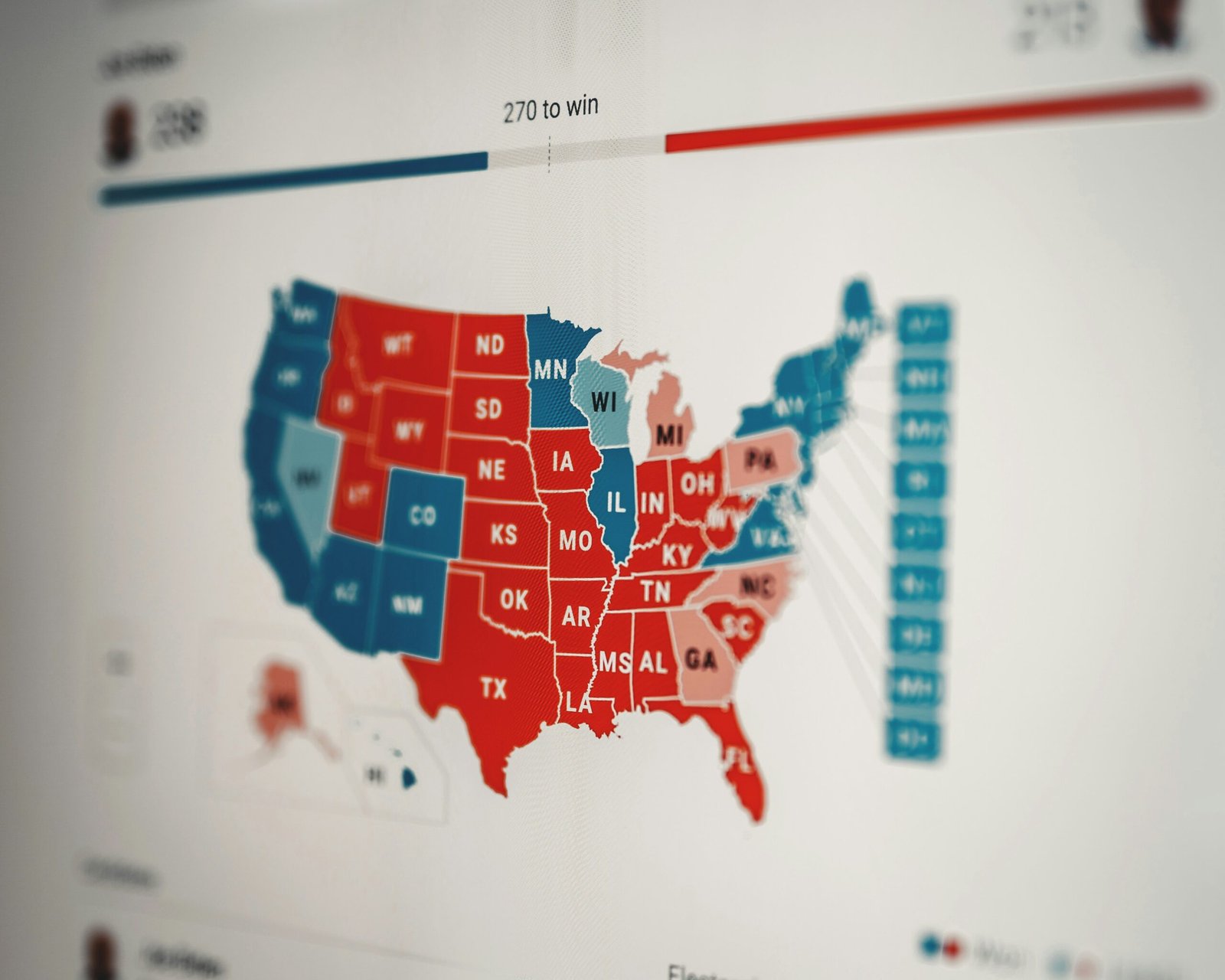
One of the most significant recent political events was the presidential election in the United States. The 2020 election was highly anticipated and closely watched by people all over the world. The race between the incumbent President Donald Trump and former Vice President Joe Biden was marked by intense campaigning, debates, and controversies.
The outcome of the election had far-reaching implications not only for the United States but also for the global community. With Joe Biden emerging as the winner and becoming the 46th President of the United States, there was a shift in the country’s political landscape. Biden’s victory brought with it a sense of hope and change, as he promised to tackle pressing issues such as the COVID-19 pandemic, climate change, racial inequality, and economic recovery.
Another significant event that shook the political world was the Brexit deal. After years of negotiations and uncertainty, the United Kingdom officially left the European Union on January 31, 2020. This decision had profound consequences for both the UK and the EU, as it marked the end of a 47-year-long relationship and raised questions about trade, immigration, and the future of the European project.
The Brexit deal not only impacted the political sphere but also had economic and social ramifications. The UK’s departure from the EU led to changes in trade agreements, border controls, and the movement of people. It also sparked debates and discussions about the identity and unity of the UK, with Scotland and Northern Ireland expressing their desire for independence.
Furthermore, the global response to the COVID-19 pandemic has been a major political event that has shaped the course of governments and societies. The outbreak of the virus in late 2019 and its subsequent spread across the globe led to unprecedented challenges for political leaders. Governments had to make tough decisions regarding public health measures, economic stimulus packages, and the distribution of vaccines.
The pandemic exposed the strengths and weaknesses of political systems around the world. Some leaders were praised for their swift and effective response, while others faced criticism for their handling of the crisis. The global cooperation and coordination in tackling the pandemic also highlighted the importance of international relations and the need for collective action.
In conclusion, recent political events have had a profound impact on the world we live in. The outcomes of elections, the decisions made regarding international relationships, and the response to global crises all shape the course of nations and affect the lives of individuals. It is essential to analyze and understand these events to gain insights into the political landscape and the direction in which our societies are heading.
The Rise of Populism
One of the most notable trends in recent political events is the rise of populism. Populist movements and leaders have gained traction in many countries, challenging the established political order. This phenomenon can be seen in the election of Donald Trump as President of the United States, the Brexit vote in the United Kingdom, and the rise of far-right parties in Europe.
The appeal of populism lies in its promise to address the concerns of ordinary people and challenge the elites. Populist leaders often tap into the grievances of the population, such as economic inequality, immigration, and a sense of cultural displacement. They present themselves as champions of the common man, promising to bring about change and restore power to the people.
However, the rise of populism also raises concerns. Critics argue that populist leaders often rely on divisive rhetoric, scapegoating certain groups, and promoting a narrow nationalist agenda. They may undermine democratic institutions, polarize societies, and erode the norms of civil discourse. It is crucial to carefully analyze the impact of populism on the political landscape and its long-term consequences.
Populist movements often emerge during times of economic uncertainty and social upheaval. The global financial crisis of 2008, for example, created a fertile ground for populist sentiments to flourish. Many people felt left behind by globalization and the rapid pace of technological advancements, leading to a sense of economic insecurity and a loss of cultural identity.
Populist leaders capitalize on these feelings of discontent by offering simple solutions to complex problems. They promise to protect jobs from outsourcing, restrict immigration to preserve national identity, and challenge the influence of global institutions. Their message resonates with those who feel that their concerns have been ignored by the political establishment.
However, the rise of populism is not without its challenges. Critics argue that populist leaders often exploit fear and division to gain and maintain power. They use inflammatory language to scapegoat certain groups, such as immigrants or religious minorities, as the cause of societal problems. This not only fuels discrimination and xenophobia but also undermines social cohesion and the principles of tolerance and inclusivity.
Furthermore, populist leaders often exhibit authoritarian tendencies, seeking to consolidate power and weaken democratic institutions. They may attack the free press, undermine the independence of the judiciary, and marginalize opposition voices. This erosion of democratic norms and institutions can have far-reaching consequences for the rule of law and the protection of individual rights.
It is important to recognize that the rise of populism is not a monolithic phenomenon. Populist movements can vary significantly in their ideologies and policy proposals. Some may be more moderate and focused on addressing legitimate concerns, while others may embrace more extreme positions and promote exclusionary policies.
As societies grapple with the challenges posed by populism, it is essential to engage in constructive dialogue and debate. This includes critically examining the underlying causes of populism, addressing the legitimate grievances of the population, and promoting inclusive policies that foster social cohesion and economic opportunity for all.
Furthermore, the impact of social media on political events extends beyond mobilization and information sharing. It has also transformed the way political campaigns are conducted. In the past, candidates relied heavily on traditional media outlets such as television, radio, and newspapers to reach voters. However, with the rise of social media, politicians now have direct access to their constituents.
Through platforms like Facebook and Twitter, politicians can engage with voters on a personal level, sharing their thoughts, responding to questions, and addressing concerns. This direct interaction has the potential to humanize politicians and create a sense of connection between them and the public. It allows for a more intimate and authentic form of communication that was previously inaccessible.
Moreover, social media has revolutionized the way political campaigns target and reach specific demographics. With the vast amount of data collected by platforms like Facebook, campaigns can tailor their messages to resonate with different groups of voters. This micro-targeting approach allows candidates to focus their efforts on key swing states or demographics, maximizing their chances of success.
However, the use of social media in political campaigns also raises ethical concerns. The Cambridge Analytica scandal, for instance, exposed how personal data harvested from Facebook was used to manipulate voters during the 2016 U.S. presidential election. This incident highlighted the need for stricter regulations and transparency regarding the use of data in political campaigns.
In conclusion, social media has had a profound impact on recent political events. It has democratized political discourse, provided a platform for marginalized voices, and transformed the way political campaigns are conducted. However, it also presents challenges such as the spread of misinformation and the ethical use of personal data. As social media continues to evolve, it is crucial to navigate these challenges and harness its potential for positive change in the political landscape.
This global shift in power has significant implications for the international economic system. As China continues to rise as an economic powerhouse, it has become a major player in global trade and investment. Its Belt and Road Initiative, a massive infrastructure project spanning multiple continents, has the potential to reshape global trade patterns and increase China’s influence in regions that were traditionally dominated by Western powers.
At the same time, the growing influence of non-Western countries, such as India, Brazil, and Russia, has challenged the dominance of Western nations in global decision-making. These countries have formed alliances and partnerships, such as the BRICS group, to amplify their voices and push for a more equitable international order.
The changing power dynamics also have implications for global security. With the rise of new power centers, traditional alliances and partnerships are being reevaluated. For example, the European Union, once a strong ally of the United States, is forging closer ties with China and other non-Western countries. This shift in alliances has the potential to reshape military and security cooperation, as well as intelligence sharing.
Moreover, the global shift in power has prompted a reexamination of global governance structures. The United Nations, World Bank, and International Monetary Fund, which were established after World War II, were designed to reflect the power dynamics of that time. However, as power has shifted away from Western countries, there have been calls for reform to ensure that these institutions are more representative and inclusive.
Addressing global challenges such as climate change, cybersecurity, and global health will require collective action and cooperation among nations. The effectiveness of global institutions in addressing these challenges will depend on their ability to adapt to the changing power dynamics and incorporate the perspectives of emerging powers.
In conclusion, the global shift in power has far-reaching implications for the international economic system, global security, and global governance. As non-Western countries rise and alliances shift, the balance of power is being reshaped. The ability of countries to work together and adapt to these changes will be crucial in addressing the complex challenges of the 21st century.




